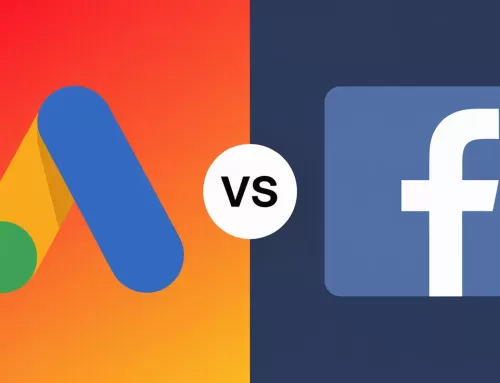
In today’s digital world, online branding is no longer just an option—it’s essential. With so many businesses competing for visibility and consumer attention, having a strong online brand presence can be the difference between thriving and merely surviving. But what exactly makes online branding effective? What separates a forgettable brand from one that sticks in the minds of consumers and becomes synonymous with trust and value?
In this guide, we’ll take a closer look at the key elements that make online branding successful. We’ll also explore strategies to help brands stand out and provide actionable tips to strengthen your digital presence.
Why Online Branding Matters
Before we get into the details of effective online branding, it’s important to first understand why it matters. In short, online branding is about creating a unique and recognizable identity for your business across all digital platforms. This identity helps you build trust with your audience, engage customers, and set yourself apart from the competition.
In fact, research from LucidPress shows that businesses with consistent branding across all channels can increase revenue by up to 23%. This demonstrates that companies that prioritize their brand’s presence online are more likely to see significant returns.
The primary goals of online branding include:
- Building Trust: A consistent brand signals professionalism and reliability.
- Creating Emotional Connections: A strong brand resonates with your audience and fosters loyalty.
- Boosting Recognition: When your brand is easily recognizable, it enhances visibility and market share.
- Driving Conversions: Effective branding leads to better customer experiences, which ultimately increase sales and engagement.
Now, let’s move on to the key elements that make online branding effective.
Core Elements of Effective Online Branding
1. Consistency is Key
One of the most important aspects of successful online branding is consistency. Your brand needs to be cohesive across all platforms, whether it’s your website, social media profiles, or email campaigns. This consistency reassures your audience and helps them form a stronger connection with your brand.
Visual Consistency:
The visual elements of your brand—such as your logo, color palette, typography, and imagery—should be instantly recognizable no matter where customers interact with you. For instance, whether they see a social media post, visit your website, or receive an email from your company, the look and feel should be consistent.
Tone and Messaging Consistency:
In addition to visuals, the tone and messaging of your brand should also remain consistent across all platforms. For example, if your website has a formal tone but your social media posts are casual and humorous, it can confuse your audience. This inconsistency can weaken your brand’s identity.
Moreover, using consistent messaging helps reinforce your brand’s values and mission. When customers encounter your content, they should immediately recognize your brand’s voice and know what to expect.
Actionable Tip:
Create a brand style guide to ensure that all visuals, tone, and messaging are aligned. This guide can be shared with your team to keep your brand consistent no matter who is creating content or marketing materials.
To learn more about aligning your business’s appearance with your brand, check out our article on Aligning Your Business with Your Appearance.
2. Authenticity Builds Trust
In today’s world of information overload, consumers are constantly bombarded with marketing messages. As a result, people are looking for brands that feel authentic and genuine. Brands that stay true to their values and communicate honestly with their audience are more likely to build long-term trust.
Why is authenticity vital in Online Branding?
Authenticity is a cornerstone of successful online branding because it builds genuine connections with your audience. In a world where consumers are flooded with marketing messages, people are drawn to brands that feel human, transparent, and relatable. According to a Stackla study, 86% of consumers say that authenticity is a major factor in deciding which brands to support. This means that brands showing real stories, honest messaging, and a clear commitment to their values are more likely to gain trust and loyalty. When your online branding reflects authenticity, it helps people feel they can trust your brand and rely on it, fostering a lasting relationship that goes beyond simple transactions. Authentic brands resonate more deeply with their audience, leading to stronger, more meaningful customer relationships.
How to Build Authenticity in Your Online Branding:
- Share your company’s mission and values openly.
- Show behind-the-scenes moments or stories that highlight your brand’s personality and culture.
- Be honest and admit mistakes when they happen. This shows integrity and builds trust over time.
Actionable Tip:
Engage with your audience in an authentic way, especially on social media. Respond to comments, share user-generated content, and participate in discussions about your industry. The more genuine your interactions, the stronger your connection with your audience will be.
3. SEO is Essential for Online Branding
SEO is essential to effective online branding because it boosts your brand’s visibility across search engines like Google. When you optimize your website content, keywords, and structure, you increase the chances that people searching for products or services in your industry will find you at the top of their search results. This visibility is crucial for building brand awareness and attracting more visitors to your site. By appearing higher in search rankings, SEO helps establish your brand’s authority and credibility, making you the go-to choice in your niche. In short, strong SEO practices make your brand more accessible and recognizable to potential customers, supporting long-term growth and trust in your online branding.
Why is SEO Important for Branding?
SEO helps build your brand’s online authority. By ranking high on search engines, your business becomes more visible and trustworthy in the eyes of potential customers. In fact, 75% of users never scroll past the first page of search results, according to HubSpot. This makes it crucial for your brand to appear at the top.
Key SEO Strategies for Branding:
- Optimize Your Website: Use relevant keywords, meta descriptions, and well-structured content that reflects your brand.
- Create High-Quality Content: Focus on solving problems, educating, or entertaining your audience.
- Leverage Local SEO: If your business targets a specific area, make sure you use local SEO tactics to improve visibility.
Actionable Tip:
Make sure your business is listed on Google My Business and other local directories to improve local SEO. This is especially important if you’re targeting customers in a specific region.
4. A Strong Social Media Presence
Social media is a powerful tool for building your brand. It allows you to connect with your audience directly and build relationships in real-time. Social platforms like Instagram, Facebook, and LinkedIn give your brand a voice and make it more approachable.
How Does Social Media Boost Branding?
Your social media profiles serve as extensions of your brand. They offer opportunities to tell your brand’s story, engage with followers, and promote your products or services in creative ways.
Here’s What to Focus On:
- Engaging Content: Post content that encourages likes, shares, and comments. The more engagement your posts receive, the more your brand’s visibility grows.
- Consistency: As mentioned earlier, keep your branding consistent across all platforms, from visuals to tone.
- Storytelling: Share behind-the-scenes content, success stories, or employee highlights to create a deeper connection with your audience.
If you’re just getting started with a new business or revamping your website, take a look at our guide on Things to Keep in Mind While Designing a Website for Your Startup. A well-designed website goes hand-in-hand with a strong social media presence.
Additionally, social media allows for user-generated content, which can significantly boost your brand’s reach. According to Crowdtap, user-generated content is 35% more memorable and 50% more trusted than traditional media.
Actionable Tip:
Use social media tools like Hootsuite or Buffer to schedule posts and keep your content consistent. Also, create branded hashtags to help build a sense of community around your brand.
5. Content Marketing for Authority and Engagement
In the digital world, content truly is king. Content marketing is one of the most effective ways to build your brand’s authority and keep your audience engaged. By creating valuable content that aligns with your brand’s message, you establish trust with your audience and position yourself as an expert in your field.
Why is Content Marketing Important for Branding?
Content marketing is essential for online branding because it allows you to share valuable information that goes beyond simply promoting your products or services. High-quality content, like blog posts, videos, guides, or case studies, provides educational and helpful insights, positioning your brand as a trusted source. By addressing your audience’s questions, needs, or challenges, you build a meaningful connection and demonstrate your brand’s expertise. This deeper engagement not only builds trust but also fosters loyalty, as customers are more likely to support brands that offer genuine value and understanding. In the long run, content marketing strengthens your brand’s identity and sets you apart as a reliable leader in your industry.
Types of Content to Focus On:
- Blog Posts and Articles: Writing blog posts and articles helps position your brand as an authority in your industry. By sharing informative, relevant insights, you show that you understand the field, which helps potential customers view your brand as knowledgeable and credible. Additionally, blog content improves your website’s SEO by targeting specific keywords, making it easier for people to find you online.
- Video Content: Videos are one of the most engaging ways to connect with audiences today. Through videos, you can tell stories, explain complex topics, or demonstrate product features in a simple, visual way. They’re a powerful tool to show your brand’s personality, making it easier for viewers to feel connected and engaged.
- Case Studies and Testimonials: Sharing real customer success stories or testimonials showcases how your product or service has positively impacted others. Case studies offer specific examples of how your brand delivers results, and testimonials build trust by providing social proof. These formats help potential customers feel confident in choosing your brand by seeing how others have benefitted.
Actionable Tip:
Plan your content using a content calendar. Include a mix of blog posts, videos, infographics, and case studies to keep your audience engaged and interested.
For more ideas on how to create effective content, you can read this article on Building Brand Recognition Through Content.
6. PPC and Paid Advertising
Lastly, while organic growth through SEO and content marketing is crucial for long-term success, paid advertising offers a faster way to increase your brand’s visibility. With pay-per-click (PPC) campaigns, you can display ads to specific audiences based on their interests, location, and browsing behavior, allowing you to reach potential customers quickly. PPC campaigns can drive traffic to your website within hours of launching, making them ideal for boosting brand awareness in a short time. By using both organic and paid strategies, you maximize your reach and ensure your brand stays top-of-mind for your target audience.
Why Use PPC for Branding?
PPC (Pay-Per-Click) ads on platforms like Google, Facebook, and Instagram are an effective way to increase brand visibility and drive targeted traffic to your website. Unlike organic methods, PPC ads give you immediate exposure and can be tailored to reach specific audiences based on their interests, demographics, and online behavior. This ensures your brand reaches the right people at the right time, boosting awareness and engagement with potential customers.
Actionable Tip:
Define your audience and create compelling, clear ad copy that resonates with them. Use eye-catching visuals or headlines that reflect your brand values and message. Regularly monitor your ad performance and make adjustments to improve targeting and engagement.
Your Top Questions Answered: Online Branding Essentials
1. What is online branding, and why is it important?
Online branding is the process of creating a consistent and recognizable identity for your business across digital platforms, including your website, social media, and search engines. It’s important because it helps you stand out in a crowded digital space, builds trust with your audience, and shapes how potential customers perceive your business. A strong online brand can lead to increased customer loyalty, better engagement, and improved sales, as people are more likely to choose brands they recognize and trust.
2. How can I make my brand stand out online?
To make your brand stand out, focus on consistency, authenticity, and a clear message. Consistency means using the same colors, logo, tone, and values across all platforms, so people instantly recognize your brand. Authenticity is about being genuine and true to your brand’s mission and values—showing the human side of your business. Lastly, communicate your brand’s unique qualities and benefits clearly, emphasizing what makes you different from competitors. When these elements work together, your brand becomes more memorable and relatable.
3. What role does social media play in online branding?
Social media plays a huge role in online branding because it lets you directly connect with your audience. Platforms like Instagram, Facebook, and LinkedIn give you the chance to show your brand’s personality, tell your story, and interact with followers in real time. Through engaging posts, live videos, and direct messaging, social media builds stronger relationships with customers, turning them into loyal supporters. Social media also makes it easy for your audience to share your content, which can expand your brand’s reach and attract new followers.
4. How does SEO support my online branding efforts?
SEO (Search Engine Optimization) helps people find your brand by improving your website’s position on search engines like Google. When your website appears at the top of search results, more people see it, which increases brand visibility. SEO also builds authority; if people consistently see your brand in search results, they’re more likely to trust it as a leader in your industry. Good SEO practices include using relevant keywords, creating valuable content, and optimizing your website’s structure, all of which contribute to a stronger online brand.
5. Can small businesses achieve effective online branding?
Absolutely! Small businesses can create strong online brands by focusing on what makes them unique. Being a small business often means you can connect with customers in a more personal and authentic way. Use your story, values, and mission to show what sets you apart, and engage actively with your audience on social media. Small businesses can often be more flexible and responsive, building loyalty by offering a unique, genuine experience that larger brands may struggle to match.
6. How long does it take to see the impact of online branding?
Building a strong online brand is an ongoing process. Some elements, like paid advertising, can create immediate visibility, but organic branding through SEO, content marketing, and social media usually takes several months to build up. Think of online branding as a long-term investment: the more consistent and authentic you are, the stronger your brand will become. Over time, this approach helps you create a lasting connection with your audience, which leads to sustainable growth and recognition.
7. Do I need a brand style guide?
Yes, a brand style guide is essential. It’s a document that outlines how your brand should look, sound, and feel across all platforms. This includes guidelines for colors, fonts, logos, and messaging tone. A brand style guide keeps everything consistent, which is important for building recognition. It also makes it easier for anyone working on your brand—like team members or outside agencies—to understand your brand’s identity and stay aligned with it, creating a cohesive and professional impression.
8. What is the role of content in online branding?
Content is the heart of online branding because it lets you share valuable information, connect with your audience, and show your expertise. Through blogs, videos, case studies, and social media posts, you’re able to address your customers’ needs, answer questions, and solve problems. This not only positions your brand as a helpful resource but also builds trust. Quality content keeps your audience engaged and gives them reasons to return to your brand, strengthening your brand’s presence over time.
9. Why is authenticity important in online branding?
Authenticity is essential because today’s customers want to support brands that feel real and trustworthy. Being authentic means showing your brand’s personality, being transparent, and staying true to your values. When you’re open about who you are and what you stand for, customers feel a stronger connection to your brand, which builds loyalty. Authentic brands tend to attract dedicated followers who appreciate honesty and are more likely to support your brand long-term.
10. How does paid advertising fit into an online branding strategy?
Paid advertising, like PPC (Pay-Per-Click) campaigns, can play an important role by boosting your brand’s visibility quickly. Ads on platforms like Google, Facebook, and Instagram allow you to reach specific audiences, making it easier to attract the right customers. While organic branding efforts take time, paid ads can create instant exposure, especially useful for promoting new products or seasonal offers. Paid ads work best when they support your ongoing branding strategy, giving your brand a boost while you continue building your presence organically.
Conclusion
Effective online branding involves more than just a great logo or catchy tagline. It’s a multi-layered approach that includes consistency, authenticity, SEO, social media, content marketing, and paid advertising. By mastering these elements, you can create a powerful brand that not only resonates with your audience but also builds lasting trust and loyalty.
When done right, online branding helps your business stand out in a crowded marketplace, creates meaningful connections with your customers, and drives long-term growth. Whether you’re just starting out or looking to strengthen your brand’s online presence, following these core principles will help you build a brand that not only looks great but delivers real, measurable results.
So, take action now! Start by ensuring consistency in your brand across all platforms, engage with your audience authentically, and make sure your website and content reflect the values that set your business apart. If you’re ready to dive deeper into specific areas of online branding, don’t forget to explore related articles on SEO strategies, social media optimization, and PPC campaigns.
Remember, building a successful brand online is an ongoing journey. Keep refining, evolving, and most importantly, staying true to what makes your brand unique.









